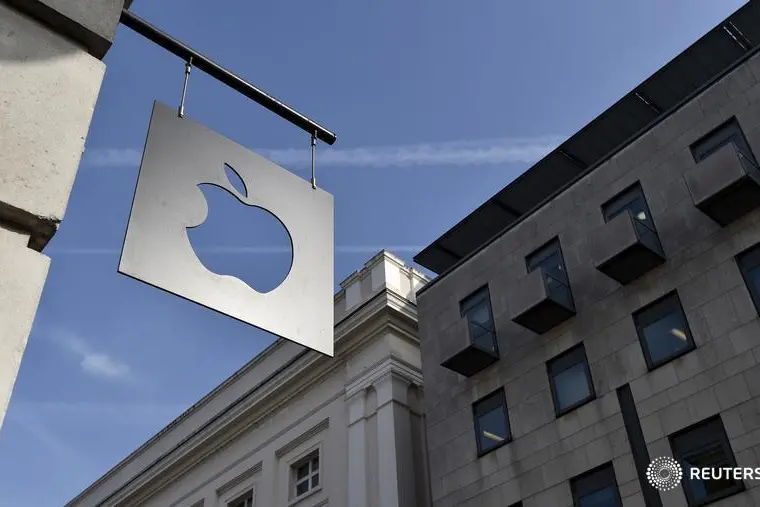PHOTO
NEW YORK - Privacy is building a wider moat for Apple’s margins. The iPhone maker’s premium prices and fast-growing services continued to power earnings in the latest quarter. Selling hardware rather than advertising once seemed like a weakness. But in the wake of Facebook’s woes, CEO Tim Cook is using data security to buff the brand – and profitability.
The $940 billion company is all about the iPhone, and it sold 41.3 million of them in the recent quarter. Although that number represented a rise of only 1 percent from the same period last year, revenue from the handset line jumped 20 percent as the company sold lots of the high-end iPhone X. That model’s price tag starts at around $1,000.
Moreover, the company sold more services to users. Increased app sales and in-app purchases from the likes of hit games like "Fortnite," as well as rising usage of the company’s Apple Pay and Apple Music offerings, resulted in $9.5 billion of revenue. That’s an increase of 31 percent from last year.
These services can pull double duty for shareholders, providing both income - helping push overall earnings to $11.5 billion in the quarter - and potentially a higher stock multiple, as they generate revenue that’s both more stable and rising faster than the iPhone’s. The stock jumped more than 2 percent in the first half hour after the results were released, pushing the company’s valuation closer to the $1 trillion mark.
Supporting both of these trends, at least somewhat, is Apple’s focus on user privacy. The phenomenal growth of Facebook and Alphabet's Google in recent years made Apple’s reluctance, or inability, to tap the online advertising market seem unfortunate. But a recent string of scandals surrounding targeted ads on social media has prompted investors to reconsider the durability and growth of businesses such as Facebook and Twitter. In this climate, Apple’s different business model is a distinct positive.
The focus on protecting user data doesn’t appear directly on Apple’s top line. But it buttressed the brand in the same way that the company’s approach to security does. The firm’s insistence on controlling software, hardware and what apps are sold in Apple’s online store pays off in less malware - and helps create the perception that the iPhone is a luxury good. Irritation over micro-targeted ads and data breaches hasn’t become as important as hardware security yet. But each scandal makes privacy a bigger selling point for Apple.
On Twitter https://twitter.com/rob_cyran
CONTEXT NEWS
- Apple on July 31 reported that revenue totaled $53.3 billion in the quarter ended June 30, up 17 percent from $45.4 billion in the same period a year earlier and ahead of sell-side analysts’ mean estimate of $52.6 billion, according to Thomson Reuters I/B/E/S. Earnings rose 32 percent to $11.5 billion. At $2.34 a share, earnings were 16 cents higher than the mean estimate of $2.18.
- The company sold 41.3 million iPhones in the latest quarter, compared with 41 million in the same period a year earlier.
- For previous columns by the author, Reuters customers can click on CYRAN/
- SIGN UP FOR BREAKINGVIEWS EMAIL ALERTS http://bit.ly/BVsubscribe
(The author is a Reuters Breakingviews columnist. The opinions expressed are his own.)
(Editing by Tom Buerkle and Martin Langfield) ((robert.cyran@thomsonreuters.com; Reuters Messaging: robert.cyran.thomsonreuters.com@reuters.net))





















